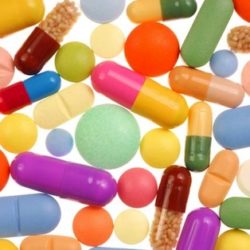
The CDC (Centers for Disease Control) estimates that more than one-half of U.S adults take dietary supplements while only 56% report their use to their health care provider.
There are literally thousands (over 50,000) of vitamins, dietary supplements and over-the-counter medications available to us. As supplements are not standardized like prescription drugs, they can greatly vary in the active ingredient (s), strength and potency.
Knowing what supplements you are taking is important for your health and safety
It is critical for your health care providers (this includes your pharmacy) to have a complete list of everything you take. This allows for the patient and provider to better partner toward optimal health. There are a number of drug-drug and drug-supplement interactions that can occur. Supplements can be associated with unwanted side effects and risks. Remember: Natural does not always mean SAFE!
You may have seen the recent reports (the week of February 3, 2015) from New York Attorney General’s office. Testing was conducted on top-selling herbal supplements at 4 major retailers in New York State. They reported that 4 of 5 products tested did not contain any of the herbs listed on the label. Additionally, they reported the supplements often contained fillers and other compounds not listed on the product label.
While there has been criticism on the methods used to analyze the supplements, this inquiry underscores the real issues we face when purchasing any herbal product or nutritional supplement.
In the United States, the FDA requires the supplement manufacturers to verify that every supplement they produce is safe and accurately labeled. Supplements are not subject to either pre-market review or the approval process for safety and effectiveness (unlike prescription drugs).
So, how do you really know what dietary supplements you are taking?
Here are some suggestions:
What does the product label tell you?
- Can you determine the actual contents? (watch out for “proprietary blends”)
- What is the source of the product?
- Do not assume all products are the same.
Look for products that have undergone third-party independent review:
- Consumerlab.com
- Natural Medicines Comprehensive Database
Check to see if the product you are buying has undergone any independent testing and certification by for content accuracy, product purity, and freedom from contaminants:
- NSF
- USP Dietary Supplement Verification Program
Ask your healthcare provider. They often can suggest products or vendors they have researched and feel comfortable recommending.
Here is a list of resources you may go to in order to find out more information:
• National Center for Complementary and Integrative Health (NCCIH)
• NIH Office of Dietary Supplements (ODS)
• MedLinePlus Herbs and Supplements
• Natural Medicines







